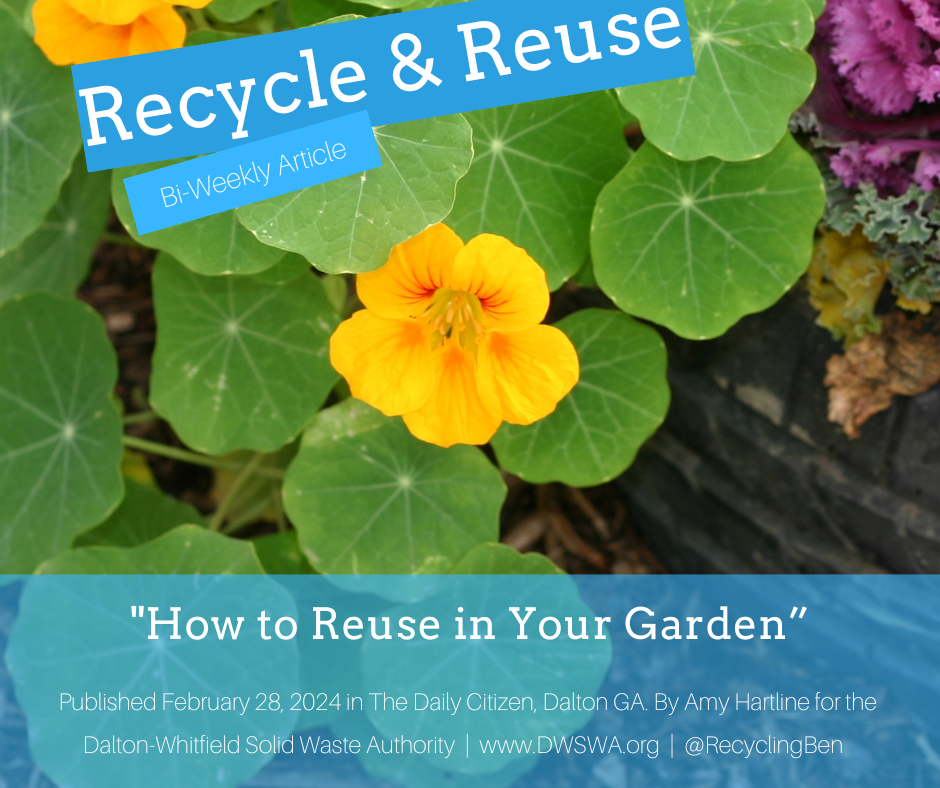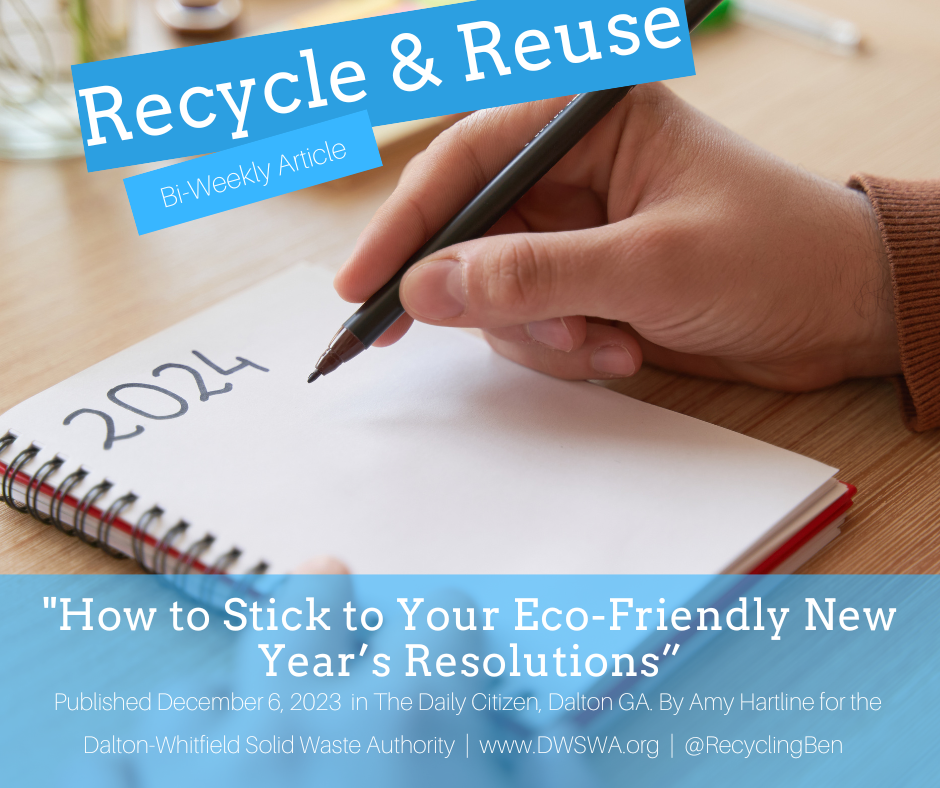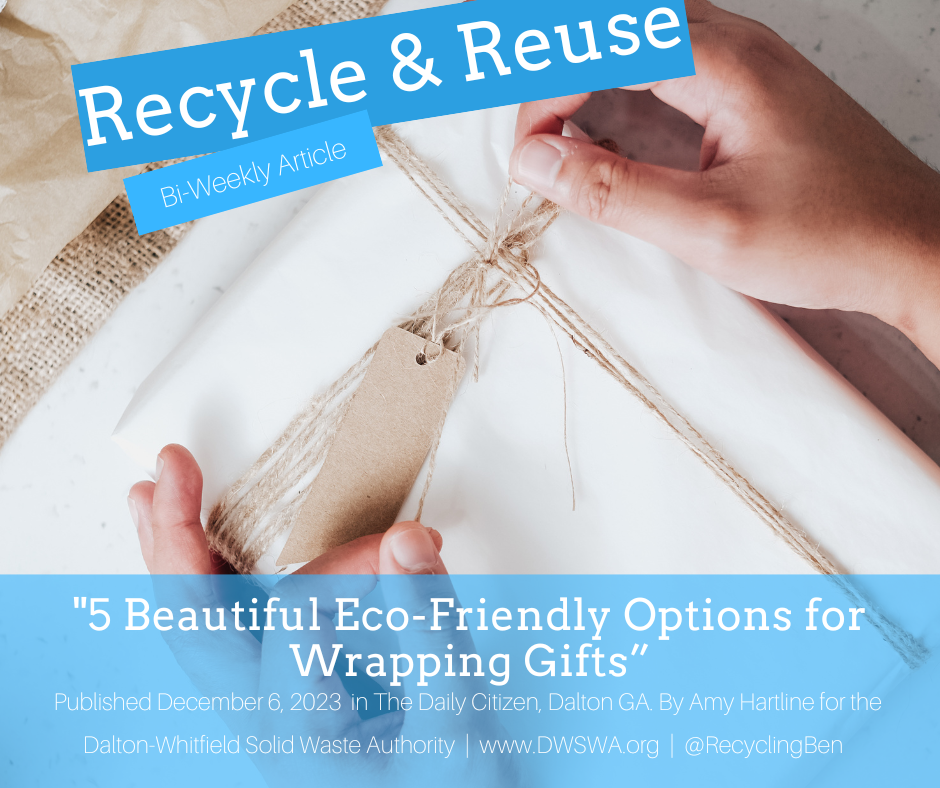Shop less, live better
/I have a secret. While I try to live my life in a way that is healthy for the planet and myself, barring a few Little Debbie snack cakes, I have one habit that can be difficult to reconcile. I love to shop, and my budget can keep me from going too far, but often that would mean I bought things of lower quality that would be quickly broken down or thrown away after the holiday was over or I was on to the next trend.
When I started this job and started seeing 300 garbage trucks go past my office every day all filled with trash from Whitfield County, I wanted to keep myself from being someone that contributed to that. I wanted to be able to tell the children I work with that I was working toward a better future for them and mean it. To truly mean that, however, I knew that I would have to tackle my love of shopping.
Today we have an excessive production of goods here in America. All you have to do to see that is walk through a couple of “big box” stores to see the shelves bursting with products. and the companies that make those products spend millions to encourage you subtly and not-so-subtly to buy more. This constant urge to buy and the push to stock shelves to the brim have led to major problems in our environment. Deforestation, pollution and heavy fossil fuel usage are all worsened by unnecessary purchases.
By simply consuming less we can decrease the demand for new products. This reduces the need for harvesting raw materials and harmful emissions. It also leads to less waste filling up our landfill.
What I’ve found in my journey to shopping less is that I reap benefits beyond reducing my guilt over hurting the environment. The most obvious benefit is that cutting back on unnecessary purchases has led to me saving money.
It has had more benefits than just for my wallet, though. It has also helped me become more grateful for what I have and to become more comfortable with my identity.
I found that one of the major reasons I purchased new items was to “try on” a new identity. I would buy a new water bottle to signify that I was a “healthier” me, a new stack of books to show I was a “smarter” me, or new outfits to be a more “put-together” me. When I forced myself to thoughtfully consider my purchases, I realized I wasn’t buying the items for their use, but to create new personas for myself. This realization had me spending more time looking inward and learning to accept who I was now. It is still something I work on, but now I get to improve instead of buying a band-aid to cover this desire.
There are a few lessons I’ve learned along the way that can help you decrease your spending. The biggest help for me was to start making wishlists. Whenever I saw something I wanted to buy I would add it to my wishlist and make myself wait at least a week before buying something that wasn’t on the list. This helped me reduce my impulse spending and gave me time to consider if I needed an item or just wanted it. You’ll find as you do this that there are items you put on your list that you don’t even remember. You may also find yourself going to add things to your list multiple times. Usually, that means that it will be a purchase you will appreciate and use.
I’ve always loved secondhand shopping, but while tackling my interest in shopping I became more mindful while I was thrifting. It is great to shop these stores because by buying secondhand you are already reducing waste and the mining of resources. You can add to this benefit by requiring yourself to buy items of quality.
Shopping for clothes while thrifting, you can often tell how well an item is holding up to wears. Do you already see fraying, loose buttons or slight piling? Skip that piece because it will probably not hold up long for you.
If you find older pieces that are still sturdy and have maintained their color, that is a good sign that you are buying something well made. Buying higher quality items helps us reduce how many things we need to buy or end up throwing in the trash. Thrifting those items has an added benefit, but that same principle can be applied to new purchases as well.
Shopping less doesn’t have to be about sacrifice. Instead, view it as a way to practice mindful living and gratefulness. When we limit our spending we aren’t just improving the planet and our expenses, but we are also gifting ourselves a higher quality of life. Try adopting these practices in your own life and see how it impacts you.
































